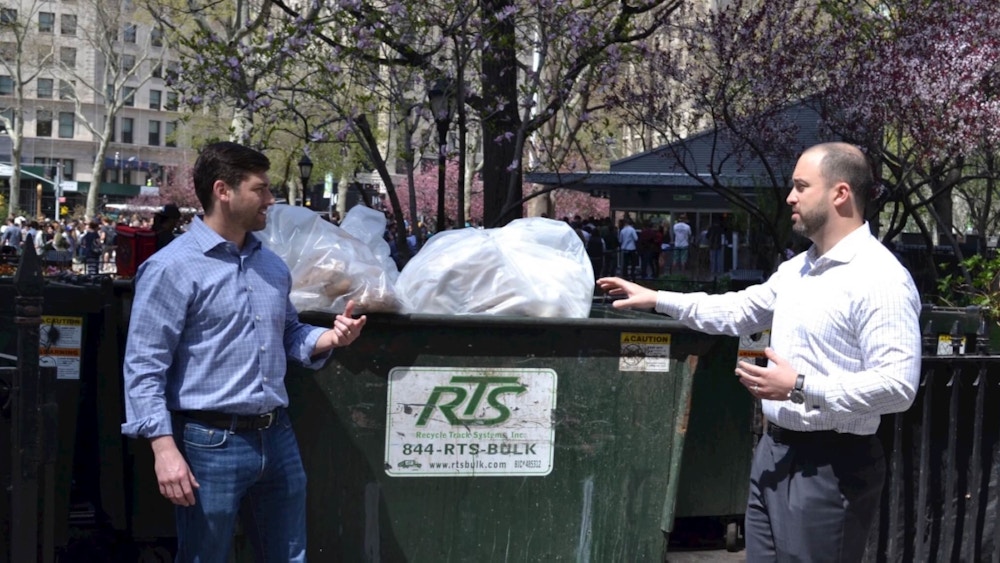By Susan Adams
Legacy garbage giants like Waste Management and Republic Services are starting to feel pressure from startups aiming to reinvent the way garbage is carted and dumped. Forbes has written about Rubicon Global, a decade-old Atlanta company that uses technology to connect haulers with municipalities and businesses. Rubicon, which hit a $1 billion valuation at its last capital raise in September 2017, has attracted controversy, including a critical Bloomberg story that cast doubt on the $300 million in annual revenue Rubicon founder Nate Morris has claimed. While Rubicon has made headlines as the Uber for trash, another disruptor, Recycle Track Systems, has been quietly adding customers and expanding its reach beyond its home base in New York City. RTS was founded in 2014 by former Bank of America senior vice president Gregory Lettieri, 35, and his buddy Adam Pasquale, 41, whose great grandfather started in the garbage business with pushcarts on Mulberry Street in Manhattan’s Little Italy in the early 1900s. RTS has raised $11.7 million in investment capital and signed up more than 500 customers including WeWork, Whole Foods, Soul Cycle, the Barclays Center and the Pierre Hotel. It’s servicing WeWork and Soul Cycle locations in Washington, D.C. and Philadelphia, in addition to other customers in those cities. RTS’s main offering is its software platform and mobile app, which allow customers to schedule on-demand pick-ups of, say, a half-dozen dented desks from a WeWork location in Soho or a pile of broken stationary bikes from a Soul Cycle on the Upper East Side. Along with this Uber-like service, RTS does regularly scheduled pick-ups. It contracts with local haulers, providing them with tablets that run RTS software. Though it has no trucks, RTS owns trash and recycling containers that it supplies to clients. RTS staffers train clients in how to separate trash to comply with city regulations. Last year, RTS had revenue of more than $10 million. In this interview, which has been edited and condensed, RTS CEO Lettieri describes how he and Pasquale got the company off the ground and why he believes it can compete for a share of the $65 billion garbage market.
